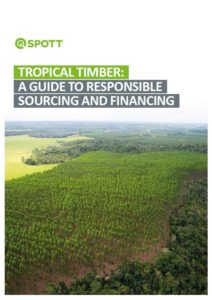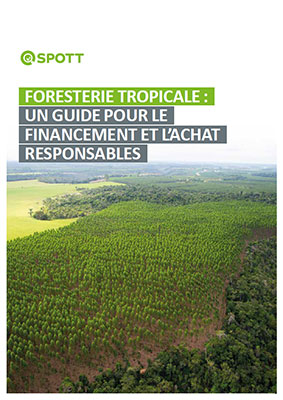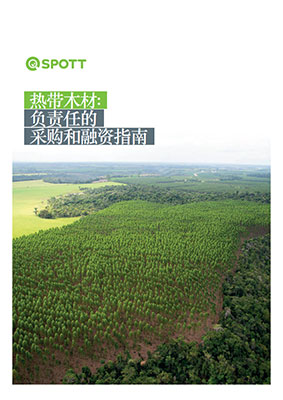Timber has been a vital resource for thousands of years and serves many functions. When produced at industrial scale, timber is harvested either through exploitation of areas of naturally occurring forest (natural forest management) or through forest areas expressly planted for exploitation (timber plantations). But the production of timber and pulp poses considerable environmental, social, and governance (ESG) risks if it is not managed sustainably.
This new report from ZSL SPOTT provides an overview of the key ESG issues associated with unsustainable timber and pulp production. It provides financial institutions and buyers guidance on the role of certification, and on what they should be asking of the companies they engage with in relation to their ESG policies and processes. It also outlines the risks and opportunities that come with pursuing unsustainable and sustainable practices, respectively.
To incentivise sustainable company behaviour, buyers must set a minimum standard for the sector by purchasing FLEGT licenced and/or FSC certified timber, and financial institutions must adopt sectoral policies making financing conditional on legal compliance and certification efforts. However, timber legality and certification should be viewed as a minimum requirement rather than as the end of the “sustainability journey”.
To create a level playing field for companies, financial institutions and buyers therefore need to review and update their own ESG requirements and engage with companies which do not meet them. It is important that companies are asked to report on the issues presented in this guide and that these issues are built into capital allocation and due diligence frameworks.



